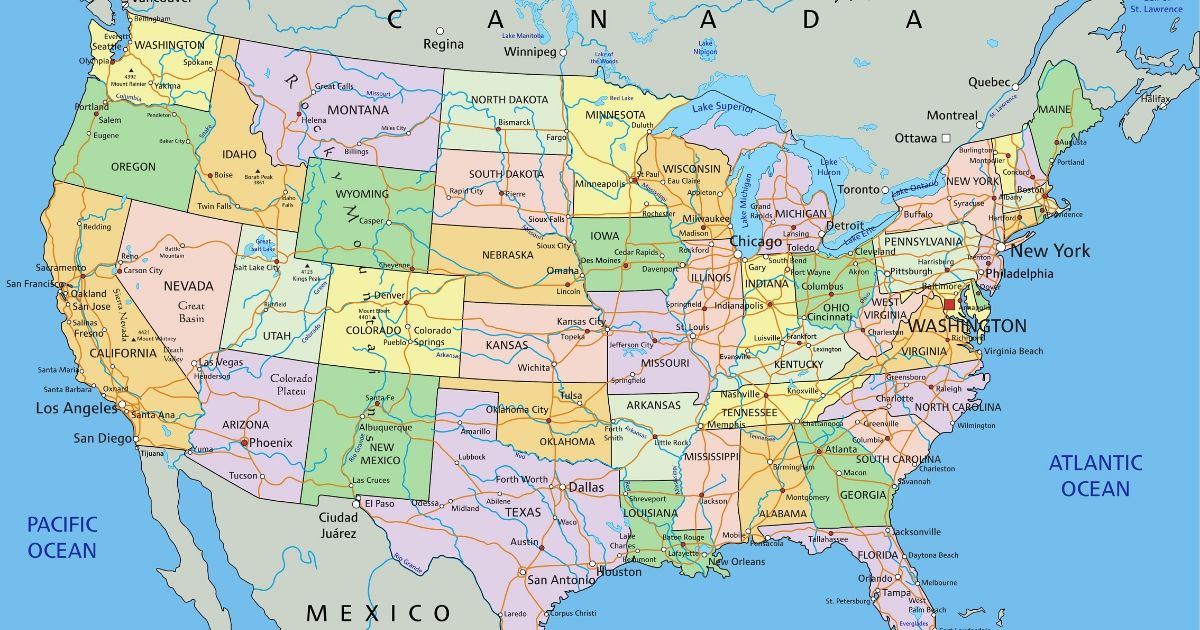
Massive Blue States Set to Lose House Seats While Red States Pick Them Up
For the first time in its history, California has lost a seat in the House of Representatives — and it’s not alone among blue states.
The U.S. Census Bureau announced Monday that based on data from the 2020 census, seven states will end up losing seats in the House of Representatives — and therefore electoral votes for the presidency — while six states will end up gaining seats.
The only state to gain or lose more than one seat is Texas, which will gain two. The shift was less than anticipated by population estimates, but it’s still bad news for Democrats.
In addition to Texas gaining seats, Colorado, Florida, Montana, North Carolina and Oregon will add House members.
The Census Bureau just released the first #2020Census results, which included the number of seats each state will have in the U.S. House of Representatives. Here are the results ? https://t.co/RHvocjkXow #Apportionment #CensusBureau pic.twitter.com/2QuyrHccDJ
— U.S. Census Bureau (@uscensusbureau) April 26, 2021
As for losing House members, California, Illinois, Michigan, New York, Ohio, Pennsylvania and West Virginia will all be down one seat.
New York was only 89 people away from not losing a seat, many noted, leading to some grim reflections on the state’s early pandemic mismanagement.
So here’s a morbid thought: the Census is a count of population as of April 1, 2020.
By that date, New York had reported 447 #COVID19 deaths in the U.S.’s first big wave.
As of then, Minnesota had 17 #COVID19 deaths.
Minnesota got a congressional seat over NY by 89 people.
— David H. Montgomery (@dhmontgomery) April 26, 2021
Estimates were for a far larger shift, with Election Data Services predicting Texas would gain three seats and Florida would gain two, while New York and California would lose at least one and possibly more.
Instead, the shift was the smallest observed since the 1941 realignment. It continued a trend toward additional seats in the South and West of the country, however — and it’s one that doesn’t benefit Democrats, both at the House level and in the Electoral College.
As for the Electoral College: “States won by Donald Trump in 2020 gained five electoral votes, and lost two, for a net gain of three,” Dan McLaughlin noted at National Review.
“States won by Joe Biden in 2020 were the opposite — five losses, two gains. Moreover, the shift from the trio of midwestern states that made Trump and Biden president (Pennsylvania, Michigan, and Ohio) to Texas and Florida is probably good news specifically for a candidate such as Ron DeSantis who can build a home base in those states,” he wrote.
A state’s electoral votes, for all of you who have been subjected to a Common Core education, are determined by its number of House members (which is variable) and senators (which is invariably two, at least until the Democrats get ahold of the Constitution).
As for the House, McLaughlin pointed out the states that gained seats have 52 Republicans and 37 Democrats representing them in the lower chamber. States that lost seats, meanwhile, are represented by 55 Republicans and 94 Democrats.
Moreover, while some of those blue states can redraw maps to eliminate Republican seats (New York, for example), others, including California, have restrictions on elected bodies redrawing congressional maps.
Florida, Montana, Ohio, Texas and West Virginia all have statehouses controlled by the GOP, while California, Colorado, Illinois, New York and Oregon are in Democratic hands. The rest are split.
If there was any overall takeaway from the numbers, it should be that Democrats have been absolutely dreadful stewards of their states.
Take the population numbers between 2019 and 2020 alone — before COVID, in other words. According to USA Today, New York lost 126,355 residents, Illinois 79,487 and California 69,532. Texas, meanwhile, gained 373,965 residents, while Florida added 241,256.
Furthermore, between 2010 and 2020, both Illinois and New York managed to shed residents; given the natural trend toward population growth, this is pretty startling. These numbers aren’t, one imagines, because of the weather.
All of those very blue states have high taxes, a high cost of living and serious social issues. Those are failures of policy and leadership, not problems that have randomly alighted on states that just happen to lean heavily Democrat.
Monday was proof that running people off with terrible policies ends badly.
The question isn’t whether Democrats will listen; we’ve seen this movie before and, given that Monday wasn’t the bloodbath that was predicted, the likelihood is that this causes the left to double down on its ineffectual policies.
The question, therefore, is whether blue-state voters decide it’s time to add a little more red to their palette.
It might seem impossible or improbable — but then, so did the likelihood of California Gov. Gavin Newsom being recalled just one year ago. If Democrats won’t learn from everyone who’s leaving, perhaps those who remain can teach them.
Truth and Accuracy
We are committed to truth and accuracy in all of our journalism. Read our editorial standards.
Advertise with The Western Journal and reach millions of highly engaged readers, while supporting our work. Advertise Today.












